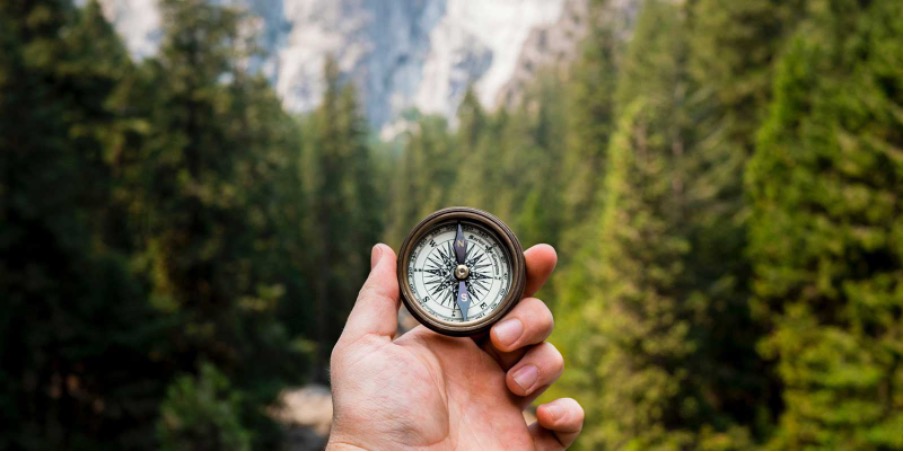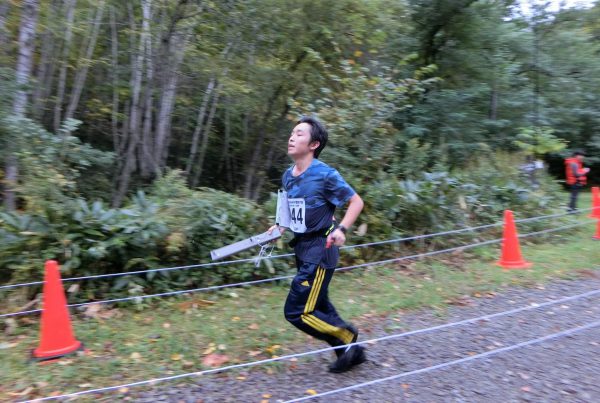Each of us has a WHY
In the words of Simon Sinek, “whether you are an entrepreneur, an employee, a leader of a team, or are looking to find clarity on your next move, your WHY is the one constant that will guide you toward fulfillment in your work and life.”
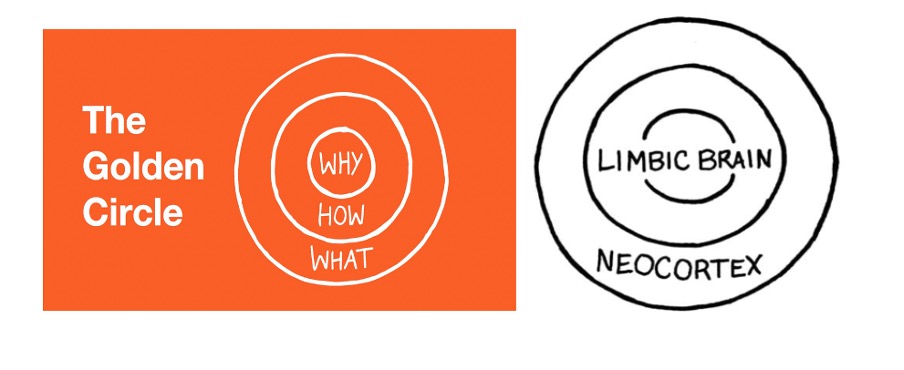
The WHY is the purpose, cause or belief that drives every one of us. The whole concept of WHY is grounded in the tenets of the biology of human decision making. How the Golden Circle works maps perfectly with how the brain works. Image and text via Simon Sinek
Initially, this could be an abstract or scary question, but this question drove Honoka Ito (Hono) to think about her future career, discover her WHY, and live-in alignment with her purpose. In an interview for The Nagaoka Review, Hono shared about her research developed during her master’s degree, international student experience in Australia, and her future business plans.
Research life
NR: Why did you choose to study at Nagaoka University of Technology (NUT)?
HI: There are several reasons behind my decision to study at NUT. Born and raised in Hokkaido, the northernmost of Japan’s main islands and the second largest island, also known for its volcanoes, natural hot springs (onsen), and ski areas, I have always been passionate about the idea of traveling and discovering more places. Driven by this idea in high school, I decided that I would like to pursue my studies outside of Hokkaido. Secondly, I studied electronics in high school, so I wanted to continue studying engineering and advance my knowledge. And finally, besides the fact that NUT is among the best engineering schools in Japan, I also heard that NUT is famous for its internship programs; I thought it was an excellent chance to go abroad as an internship student.
NR: Can you tell a little bit about your research?
HI: My background is in engineering, and my research field is “materials,” which can be considered part of engineering. Being part of Energy Materials Laboratory coordinated by Professor Masatoshi Takeda as a bachelor student and High-Temperature Materials Laboratory, Faculty of Mechanical Engineering, under Professor Makoto Nanko coordination as a master student, I advanced my research in this area. More specifically, my master’s topic was “Microstutter of ZrO2 formed on Zircaloy in high-temperature steam”. It is related to Fukushima nuclear power plant disaster. I researched why and how this disaster happened and how the meltdown has occurred through simulation experiments and analyses.
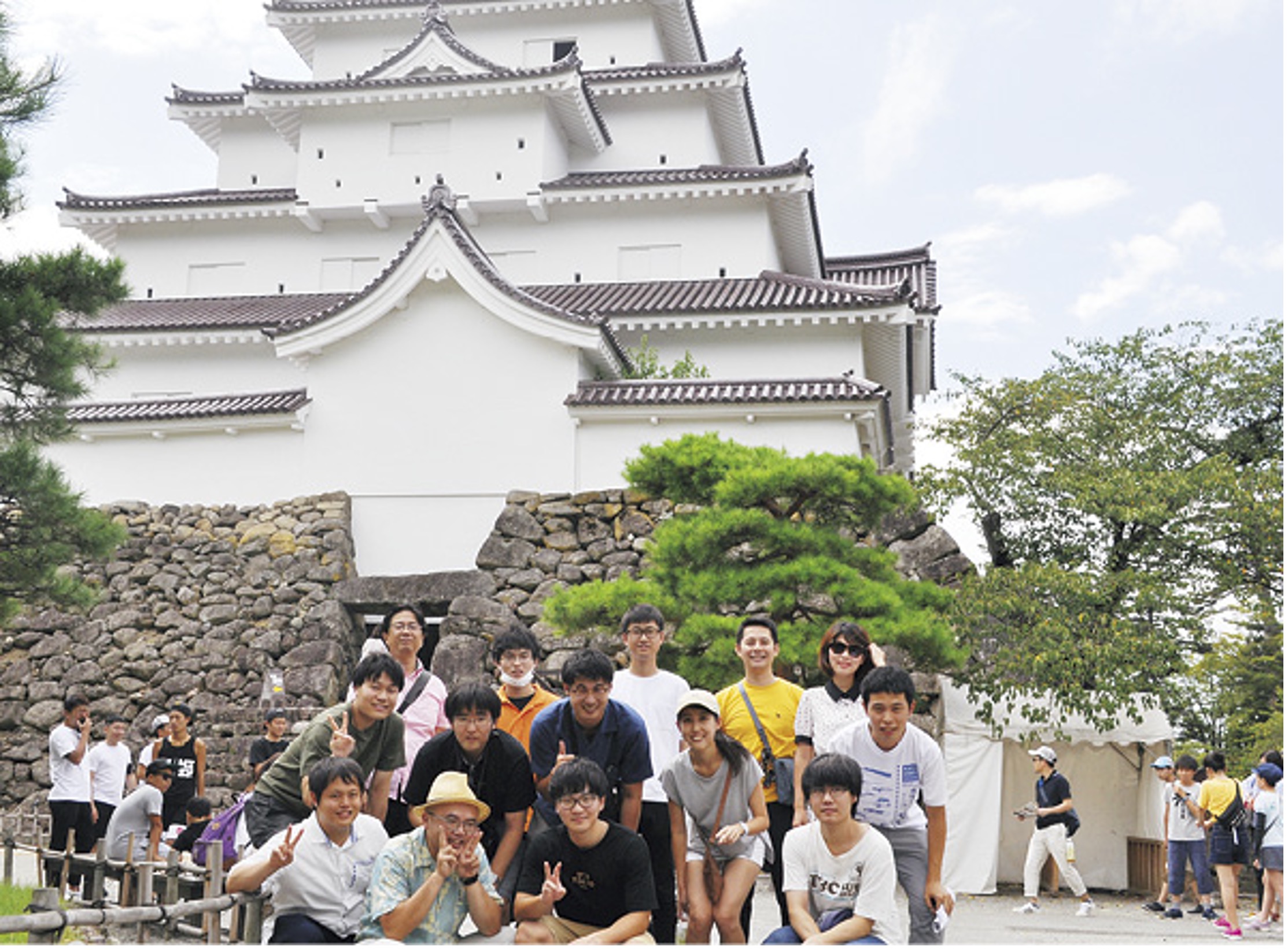
Hono, together with her colleagues from the laboratory, during a summer trip to Tsuruga castle in Fukushima. Image via High- Temperature Materials Laboratory
International Experience
NR: How did you become interested in English language?
HI: As I’m sure many of you know, English is the most used and spoken language worldwide, and Japan is not an exception. Hokkaido Sapporo Intercultural and Technological High school that I was part it’s well known for its international exposure, English classes, and many exchange students. The global environment and experience were probably the main factors that cultivated a deep interest in this language.
NR: Can you told us a little bit about your student experience at Curtin University? How is this related to your interest in English language?
HI: During my second year at NUT (2017), I spent five weeks at Curtin University in Australia as an international exchange student. This was an English language program provided by NUT, and I and some of my colleagues from NUT were the first students involved in this program. I strongly thought of going overseas to study English, and looking back, this program was one of the best choices. I had the opportunity to learn English at university and be part of a real Australian community. Arriving for my studies was my first time in Australia, and I lived in a host family during all my time there. This grateful experience made me put more effort into English, and I am very thankful for this language and cultural background.
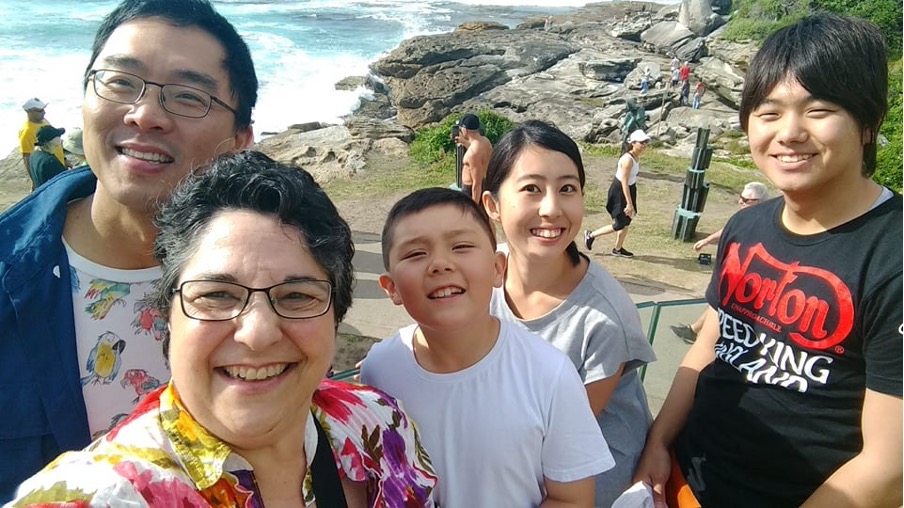
Hono together with her friend Hiro and her host family in Sydney. Image courtesy of Hono
NR: What inspired you in Australian culture? Did you find some challenges?
HI: Australians are so extraordinary! They are enjoying their lives; they are always smiling and having fun with all their might. Of course, many Japanese people (including myself) constantly chase time, and we cannot afford to enjoy life. This culture inspires me and is the reason why I want to experience it again. Speaking of challenges, I think two experiences in Australia are the biggest challenges in my life. Challenges that helped me grow and develop as a person. Firstly, life in another country, and secondly, life in a multicultural environment and interaction with people from different cultures and cultural backgrounds.
Near Oatley, a suburb in Southern Sydney in the state of New South Wales, Australia. Photo taken by Rosemary, Hono’s host mother.
NR: How did you come to follow an internship at ANSTO?
HI: The idea to follow an internship at ANSTO is related to my interest in Australian culture and my research field in materials. While studying materials at university, I wanted to advance research in this area and gain more experience in a different cultural environment, where professionals from several fields and cultural backgrounds intersect.
The Australian Nuclear Science and Technology Organization (ANSTO) is the home of Australia’s most significant landmark and national infrastructure for research. Thousands of scientists from industry and academia benefit from gaining access to state-of-the-art instruments every year. My 6-months internship experience at ASTRO from September 2018 to February 2019 was the amazing one. I get to venture into a new path of career. From that, I learned to build more connections and refine my communication skills. I found it challenging yet exciting because the team was always fun to work with and ready to guide me. I had the opportunity to work hands-on in a professional environment which gave me a grounded experience of researching and working life.
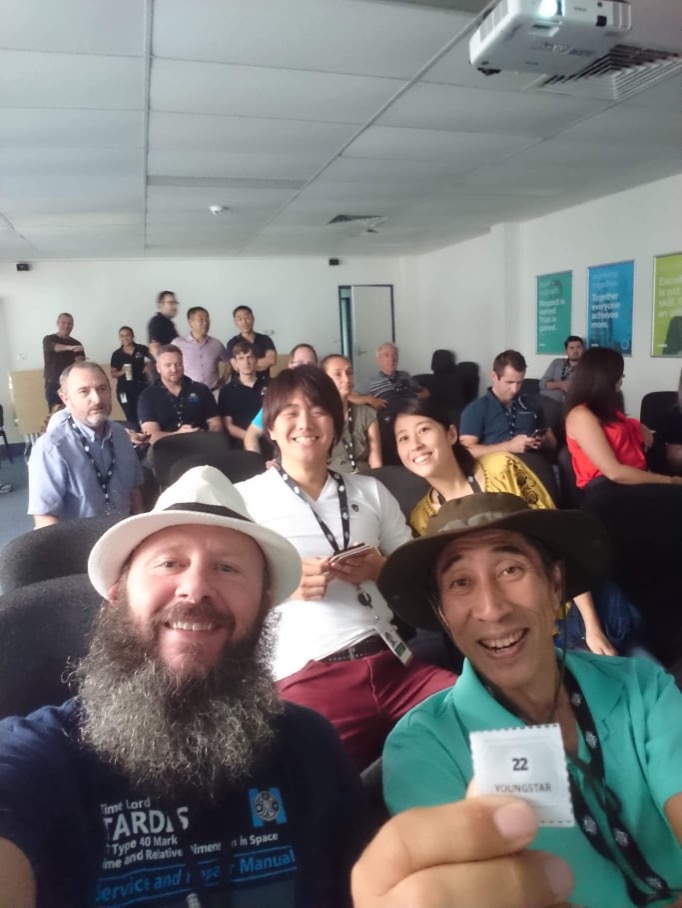
With colleagues from ANSTO during the Melbourne Cup Carnival. Photo by Hono
Define your "WHY"
NR: What are your future plans?
HI: I always wanted to have something of my own, to create something by myself, so I’m thinking of building my own business in the near future. I’m interested in starting a company because many unique systems or technologies could be implemented or developed. Still, it’s becoming more difficult due to entry barriers such as high-cost performance, regulatory hurdles, or other factors. I know it will not be easy, but I would like to try to break some cultural and business stereotypes and overcome the difficulties of implementation and development, creating new perspectives.
Some people live for their jobs – they’re driven more by professional ambitions than personal goals, and they’re often thinking about work even when they’re off the clock. On the other hand, some people work only out of necessity, clocking out both physically and mentally as soon as they end their shift.
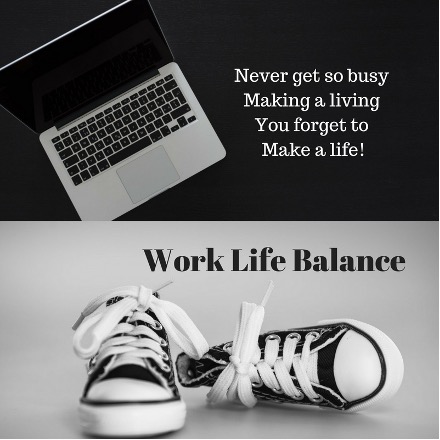
People want time more than they do money’, said Arianna Huffington back in 2013 but there never seems to be enough hours in the day, especially when you are running your own business. Life often takes a back seat! Image via Bijouconcierge
I’m adept at work-life balance and integration and thinking about the future, and I must maintain a sturdy stability between work and private live. Whatever your job, it can be challenging to manage both your professional life and your personal life. And there are a lot of contradictions, but for me running your own business makes it much easier to stabilize the boundaries between work and home and achieve a healthy balance.

